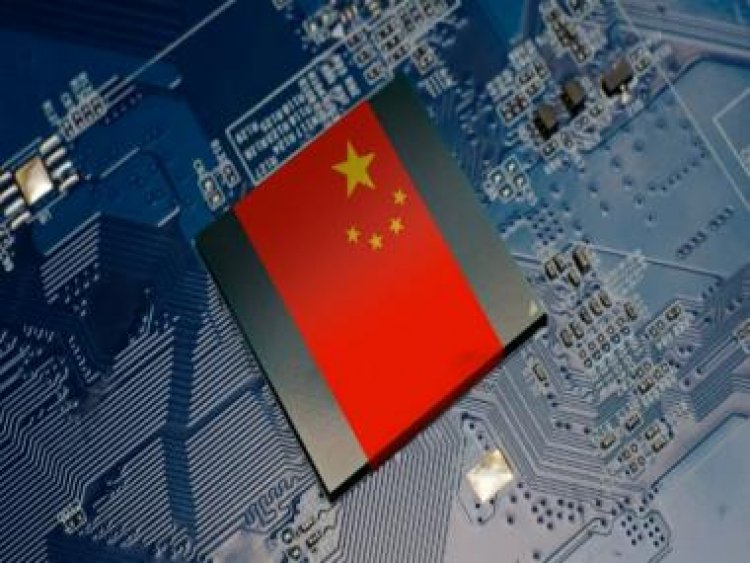Tech companies continue to abandon China. Here’s why its good news for India, Mexico and Vietnam
Tech companies continue to abandon China. Here’s why its good news for India, Mexico and Vietnam

Tech companies across the world have come to realise that the business model of production in China and exporting abroad can be a precarious and unsustainable proposition. Because of the manner in which China handled the pandemic and the subsequent lockdowns that it imposed, and ever-growing tensions with Taiwan, tech companies have been forced to come up with policies similar to Apple’s China +1 policy.
Hideo Tanimoto, president at electronics power Kyocera, Japan, seems to agree. In a recent interview, Hideo Tanimoto, president at electronics power Kyocera, Japan, stated that it no longer makes sense for tech companies to make in China and then export their products to the rest of the world.
Also read: Apple continues to ditch China: Foxconn leases new site in Vietnam for new Apple factory
Apple’s China +1 policy is being adopted everywhere
Apple, one of the biggest tech companies operating their manufacturing units in China decided to reduce their dependency on the country and explore setting up facilities in neighbouring countries. As a result, India saw a massive influx of manufacturing investment across many states, as Foxconn and Apple set up factories and production facilities in the country. Vietnam too reaped a lot of benefits from Apple’s China +1 policy.
However, over recent weeks, several other tech giants have announced that they will be looking to set up factories in other parts of Asia, and will be curbing their dependency on China. Global tech titans like Dell Technologies, the world’s third-largest computer maker, have revealed intentions to phase out Chinese microchips by next year.
Similarly, Hewlett Packard Enterprise or HP is exiting a 20-year-old IT equipment joint venture, according to a securities statement by Chinese associate Tsinghua Unigroup. Siemens is seeking to invest its next euro in Southeast Asia in order to reduce its reliance on China.
For years, companies and advisers have discussed “China +1” as ties between Beijing and Washington deteriorated. The situation now, however, has started to go from bad to worse, especially with the introduction of the US Chips and Science act.
Also read: How US CHIPS Act will help India become self-reliant in semiconductor industry
“I heard from companies throughout the region that there is an increased appetite to reduce component sourcing or move manufacturing out of China,” says Mehdi Hosseini, senior tech analyst at Susquehanna International Group.
Which countries are benefiting from China +1?
From Mexico to Poland, Malaysia, and Vietnam, potential benefactors of China’s tech exodus can be found. Global customers may have to pay more for their electronics as humming Chinese supply networks built up over two decades fracture. “Being in China has resulted in significant margin improvement for companies,” Mehdi adds. “They’ll have to find other ways to save money.”
Things have taken a nastier turn with the US going after other countries and tech companies to get them to stop working with China, especially their microprocessor and semiconductor businesses.
But the US-China chip wars isn’t the only reason why things are going wrong for China’s manufacturing sector.
Since 2010, Chinese labour expenses have increased by 40 per cent. The Russian invasion of Ukraine, as well as the widespread exodus of foreign businesses, prompted investors to consider a repetition with China and Taiwan.
The zero-Covid shutdowns in China highlighted the dangers of putting too many supply chain chickens in one basket. “People believe Taiwan could happen right now,” says Daniel Karlsson, executive head of Asia Perspective consulting firm. “Zero Covid was the final straw.”
China desperate to hold on to foreign companies
According to Karlsson, Xi Jinping’s government has tried “sucking up to Westerners” a little since removing Covid limits, especially Europeans who may be less affected by the hardening US stance. Any positive feelings may be overshadowed by an authoritarian shift as Xi begins his unusual third term.
“The last few months have convinced me that the Communist Party will be involved in any type of economic reorganization,” says Arthur Budaghyan, chief developing markets analyst at BCA Research.
South Korean firms have been pioneers in hedging their China wagers. Their motivation stems from 2016 when the Seoul government pledged to installing the US-made Terminal High Altitude Area Defense, or THAAD, anti-missile system with a focus on North Korea. Beijing protested and encouraged a boycott of Korean products and services. “The hatred that came out affected a lot of Korean businesses in China,” says James Lim, Dalton Investments’ director of Korea research.
Samsung, Korea’s largest corporation and one of the biggest tech companies in the world, has since moved all of its smartphone manufacturing out of China, primarily to Vietnam and India. Hyundai Motor also lost three-quarters of its China revenue and closed its flagship plant.
Some companies are seeing this as an opportunity
The withdrawal from China is countered by a withdrawal into China for businesses that want to market there, which may be the same companies that ship from there. Despite recent setbacks, China’s economic development is expected to remain above 4 per cent per year for the foreseeable future, far outpacing that of the United States and Europe.
Tesla and Apple are two prominent instances of foreign businesses that have capitalised on this development. Unlike rival Samsung, Apple generated 24 per cent of its worldwide sales in China during the most recent quarter. Production diversification efforts have been cautious.
Read all the Latest News, Trending News, Cricket News, Bollywood News,
India News and Entertainment News here. Follow us on Facebook, Twitter and Instagram.
What's Your Reaction?

























































